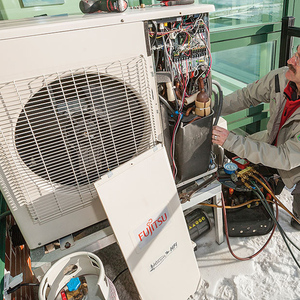Discussion Forum
Discussion Forum
Up Next
Video Shorts
Featured Story

Listeners write in about fireplaces affecting family harmony and bionic suits, before asking questions about brick steps, ground-source heat pumps, and building a dome greenhouse in Maritime Canada.
Featured Video
Builder’s Advocate: An Interview With ViewrailHighlights
"I have learned so much thanks to the searchable articles on the FHB website. I can confidently say that I expect to be a life-long subscriber." - M.K.
Fine Homebuilding Magazine
- Home Group
- Antique Trader
- Arts & Crafts Homes
- Bank Note Reporter
- Cabin Life
- Cuisine at Home
- Fine Gardening
- Fine Woodworking
- Green Building Advisor
- Garden Gate
- Horticulture
- Keep Craft Alive
- Log Home Living
- Military Trader/Vehicles
- Numismatic News
- Numismaster
- Old Cars Weekly
- Old House Journal
- Period Homes
- Popular Woodworking
- Script
- ShopNotes
- Sports Collectors Digest
- Threads
- Timber Home Living
- Traditional Building
- Woodsmith
- World Coin News
- Writer's Digest


















Replies
Hot...
why would make the heat element in the DW'er do all that work... and shorten it's life span..
Life is not a journey to the grave with the intention of arriving safely in a pretty and well preserved body, but rather to skid in broadside, thoroughly used up, totally worn out, and loudly proclaiming
WOW!!! What a Ride!
Forget the primal scream, just ROAR!!!
I hear ya. Just checking.
TRIGGER
Are the foreign made units self heating for water temp? A lot of Meile/Bosch/Asko appliances have that feature. A cold intial rinse would actually be a little better for stuff like eggs. Some foods congeal or harden with hot water. But that is a stretch. Dishwashers actually work because they use caustic soap. DW soap is very caustic compared to laundry and dish soap. Surfactant science is actually very complicated. There are cationic, anionic, non ionic surfactants. There are some with big lipids attached, some with benzene like rings attached. Commercial car washes use a special soap that neutralizes the charges on the dirt on your car. Degreasers have large lipid or benzene rings on their ends to better interact with the grease. And yes, in the real world it does make a difference.
Read the labels on shampoos. Sodium laurel sulfonate is one of the most gentle of all surfactants. It could be your best universal home soap.
Foaming is a second problem. You can't have foaming in your appliances, or all heck would ensue as froth poured forth. These are usually tamed with silicones.
Pretty geeky reply eh?
Those who can make you believe in absurdities can make you commit atrocities- Voltaire
Dang! That was pretty GEEKY! But it was interesting.
TRIGGER
I thought they all pre heat.
Beats me. Appliance technology is way too high. I buy the simplest unit I can find to avoid that. The circuit card that blew in our old GE was 200 bucks for the part alone. Thus we bought a new cheap 250 buck unit that keeps chugging away. Its amazing how as with cars that circuit boards and electronics boost efficiency immensly. But when you break something, all the savings you got are gone.
Example: Our friend got a VW Jetta diesel. He had a huge commute and indeed saved nearly 1500 bucks in fuel over the years. Then the intake got sooted up. 2000 bucks to fix it! For every bit of efficiency you get on a Euro product, you loose it on the first repair. Our Asko washer saves huge amounts of water, really. Its amazing. But if the motor or bearing goes out, its a 400 buck bill minimum. Yes, you were good to the enviroment, but your wallet doesn't really know anything about that in the end!Those who can make you believe in absurdities can make you commit atrocities- Voltaire
Unless you have a special dishwasher with a preheat cycle, it must be hot water. The heating element in the DW is just to keep the water hot and to heat during the drying cycle.
happy?
heating element will raise the inlet water temp to whatever the DW people specify- cycle is usually stopped then for the heating time.
easier quicker to pipe hot water to the DW
Standard units often have a limited heating cycle, and the 120V heater is too puny to heat the water from cold in an acceptable time. Most units will spec hot water unless they've got a 240V heater.
If ignorance is bliss why aren't more people
happy?
OK I'm going to use hot, unless further anallicist of etherhuffer's post proves you all wrong.
TRIGGER
Its a fine line between sheer genius and absolute stupidity so don't place any bets on me! Your appliance dealer is the person to ask. Not to mention the owners/installers manual!Those who can make you believe in absurdities can make you commit atrocities- Voltaire
It's a used jobby. Thanks for the conversation.
TRIGGER
now the truth comes out....Life is not a journey to the grave with the intention of arriving safely in a pretty and well preserved body, but rather to skid in broadside, thoroughly used up, totally worn out, and loudly proclaiming<!----><!----><!---->
WOW!!! What a Ride!<!----><!---->
Forget the primal scream, just ROAR!!!
Someone made an excellent point about dishwashing soap and that it's a much stronger detergent than most other household detergents.
In the past I had soaked and rinsed my dirty dishes prior to placing them into the dishwasher.
Apparently This is a mistake.
It's better (less damaging) to the plates, glasses, cups, saucers, etc to place dirty dishes directly into the diswasher and let the dishwashing detergent do it's job.
Has anyone else heard this? Maybe its an old wives tale.^^^^^^
"The Older We Get, The Better We Were"
There are silica compounds in the soap to protect the glass, but that said, the soap etches the surface over time. Precleaning really does not buy you anything.Those who can make you believe in absurdities can make you commit atrocities- Voltaire
I had heard something similar about the pre-cleaned load and etching. I heard that the etching is faster with a clean load due to the soap not having food for it to attack. It sounds like the quantity of soap being used should be proportional to the amount of food on the dishes. Is this true?
Well, yes with a caveat. Dirt is removed mechanically by the water jets. The surfactant holds the dirt in solution so it will be carried away. And not all dirt is the same. Oil and grease are the hardest to hold in suspsension so that they don't redeposit during the rinse. Scientifically, you need only one more molecule of soap than grease and you win. No way to ever know that. Most manufacturers likely err on the high side of soap use, and people use more than that quite often. The etching of glass is from the alkaline products in the detergent. Alkali compounds usually help remove dirt, which is often acidic. Again, if the equation balances, there is not a lot of free alkali around to etch, its been reacted with the acidic dirt. Use excess detergent and you will etch your glassware faster as there is more free alkali. For dishwashers, less is more.Those who can make you believe in absurdities can make you commit atrocities- Voltaire
I've read that a moderate amount of grime (and hard water) kind of "buffers" the detergent. But just using less detergent accomplishes more or less the same thing.Re hot water, I do know that a lot of dry detergents don't dissolve well in cold water.
If ignorance is bliss why aren't more people
happy?
10-4
TRIGGER